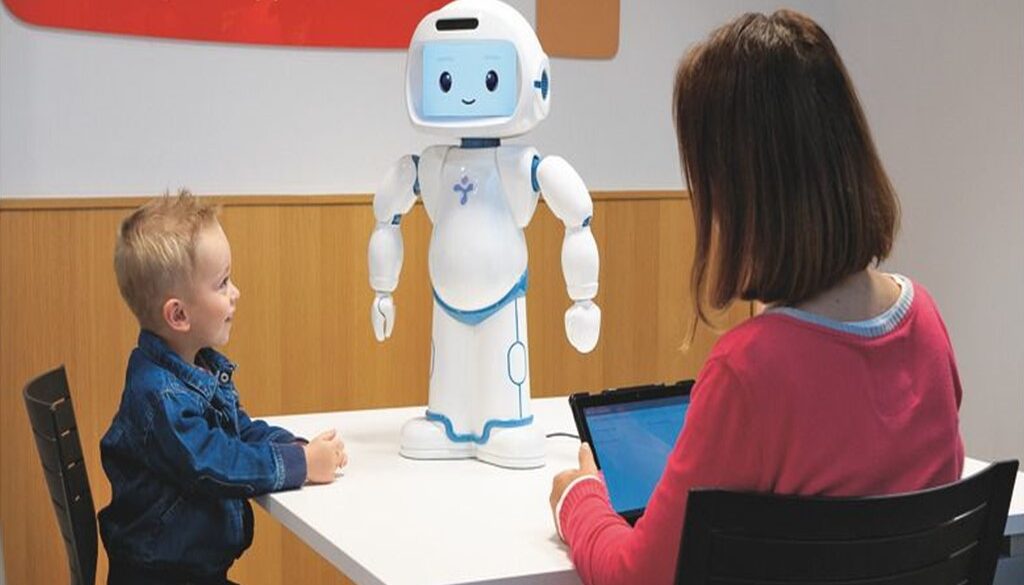
Abstract:
This project proposes the development and validation of an early-stage intervention, delivered by the expressive QTrobot, as a novel digital therapeutic for at-home therapy of children with autism. To validate the clinical effectiveness of this solution, a long-term, large-scale, and multinational clinical study will be conducted—one of its kind globally. This study will compare the progress of children receiving robot-based therapy at home, in addition to their usual care, against children receiving only the usual care. The evaluation criteria include social, cognitive, language, and communication development, as well as the reduction of autism symptoms.
Autism Spectrum Disorder (ASD) is a neurodevelopmental disorder affecting 1 in 54 children, characterized by difficulties in social interaction and communication, restricted behaviors and interests, and often delayed development in language, motor, and cognitive areas. Although there is no cure, early, intensive, one-to-one interventions have proven effective in improving life skills and autonomy for children with autism, reducing the need for long-term care and saving an average of €1.1 million per person. However, due to the shortage of autism professionals and the high costs associated with delivering such interventions, many children do not receive adequate therapy, if any.
QTrobot aims to address this shortage by empowering parents to deliver standardized and evidence-based therapies at home, providing effective, scalable, and affordable therapy for autistic children. This project will evaluate the effectiveness of this novel approach to early interventions for autism, delivered through a robot in a home setting. Additionally, necessary tools will be developed to facilitate the delivery of the intervention with high fidelity, enabling parents to create and optimize individualized therapy plans for their children, monitor progress, and actively contribute to their child’s development. Parents will be able to provide necessary prompts, reinforcements, and interactions to help children generalize learned skills from the robot to their natural social environments.
The project is a collaboration between LuxAI, a Luxembourg-based company that develops and manufactures QTrobot, and the Luxembourg Institute of Health. It brings together specialists needed to develop and clinically validate QTrobot as a medical device for at-home therapy of autistic children. The project also involves autism scientists and clinicians from Luxembourg, Germany, France, Italy, and the UK, proposing a novel and unique clinical study in terms of scope, scale (190 participants across 5 countries), and duration (10-month intervention).
By developing and validating a solution for at-home robot-assisted therapy by parents, the project aims to significantly improve the health and wellbeing of autistic children and their families, while also offering considerable cost reductions for public healthcare systems.
Reference:
https://researchportal.lih.lu/en/projects/qtrobot-a-digital-therapeutic-device-for-in-home-therapy-of-child